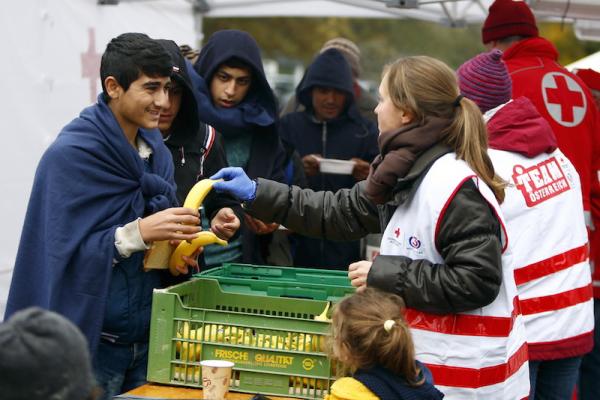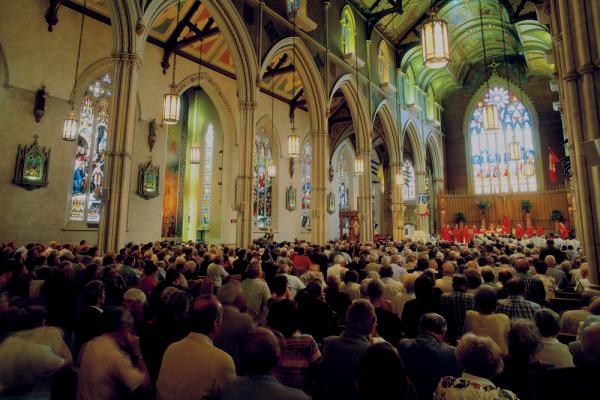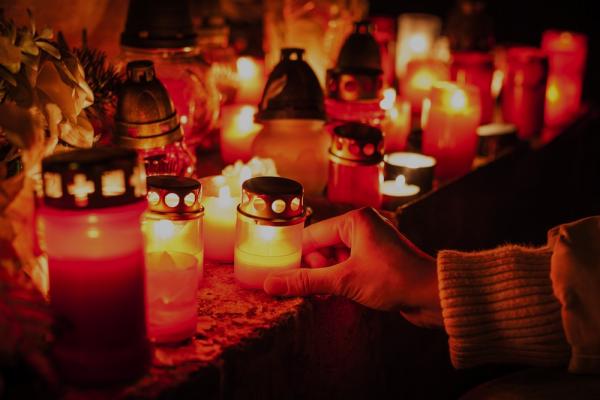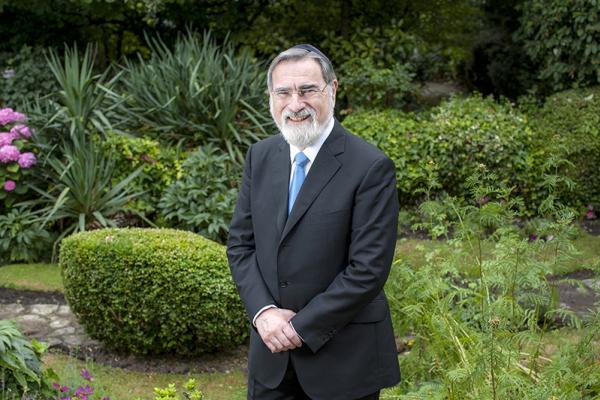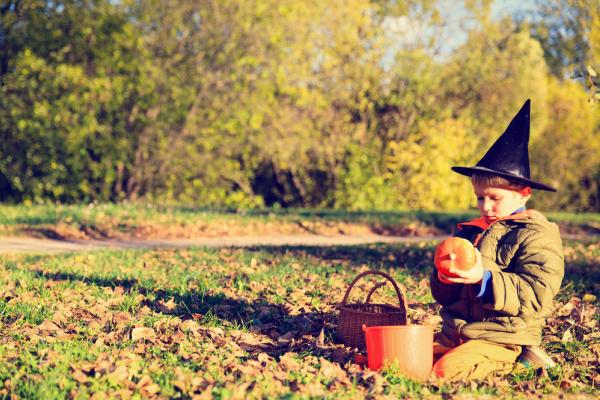One of Germany’s largest Protestant regional churches has come under fire from other Christians for speaking out against efforts to convert Muslims just as tens of thousands of refugees from the Islamic world are streaming into the country.
In a new position paper, the Evangelical Church in the Rhineland says the passage in the Gospel of Matthew known as the Great Commission — “Go therefore and make disciples of all nations, baptizing them in the name of the Father and of the Son and of the Holy Spirit” — does not mean Christians must try to convert others to their faith.
“A strategic mission to Islam or meeting Muslims to convert them threatens social peace and contradicts the spirit and mandate of Jesus Christ and is therefore to be firmly rejected,” the paper entitled “Pilgrim Fellowship and Witness in Dialogue with Muslims” argues.
A woman explores the recent trend of “death cafés” — public meetups among strangers to share experiences, memories, and challenges dealing with death of loved ones. “Death: What happens next?”
2. Has ‘Diversity’ Lost Its Meaning?
“When the word is proudly invoked in a corporate context, it acquires a certain sheen. It can give a person or institution moral credibility… It’s almost as if cheerfully and frequently uttering the word ‘diversity’ is the equivalent of doing the work of actually making it a reality.” Scorching indictment. Necessary read.
3. Persian Gulf May Soon Become Too Hot for Humans
A new study shows that by the end of the century, the heat index may hit 165 to 170 degrees for at least six hours each day. So about hosting World Cup 2022 in Qatar…
4. ‘Granny Pods’ Keep Elderly Close, at a Safe Distance
Okay, maybe we can find a better name. But these tiny houses that sit in your backyard and come with security and medical resources are a step towards improving end of life care, and keeping our families close.
It’s hard to stand in front of a congregation and talk about domestic violence.
It’s hard, because you never really know the stories of the people sitting there.
Who might have experienced domestic violence in their lives, in their home growing up, in a relationship during high school, on a college campus, in the home where they now reside?
Who might have experienced it last night? Who might have been told by their mother or religious leader that they cannot leave an abusive marriage because they would be breaking their vows? Who might have struck out at a partner? Who might have let their needs for control overwhelm their sense of self-restraint? Who might want to mask their violence with a smile or generous donations?
It's hard to stand in front of a congregation and talk about domestic violence. But it’s essential.
It’s essential because too often in the past, religious traditions have been used to defend an abusive patriarchy, to bind victims to marriage commitments that are undermined by intimate violence, to encourage people to “offer up” suffering rather than change the conditions that cause it.
It’s essential because shining a light of the reality of domestic violence is a critical step in creating pathways to safety for those who are victims. It’s essential because speaking out about domestic violence as a violation of God’s love can give victims strength to seek a better way. It’s essential because naming domestic violence as evil can help call perpetrators to account – and perhaps to repentance and treatment.
President Obama has decided to deploy a small number of American Special Operations forces to Syria, according to the New York Times.
CNN reports a senior administration official said the forces will be "fewer than 50."
When Jesus called the first disciples, he totally disrupted their economic lives. Simon and Andrew, James and John were working for their family business, as they were raised to do. Their fathers were fisherman, just like their fathers’ fathers, stretching back beyond memory. Fishing was a way to make money, but it was also much more than that. The family business provided a sense of place, of meaning. It was a social order that allowed each member of the family to know exactly where they fit.
Only when we understand this can we begin to grasp the radical nature of Jesus’ invitation to his first followers and friends: Follow me, and I will make you fish for people. Jesus offered an entirely different economic and social order. His was an invitation without safety nets, justifications, or guarantees. The first disciples immediately abandoned their nets, their livelihood, the whole social order that gave them a place to stand. They left everything, even their own worldview, to follow Jesus.
Oct. 31 is approaching quickly — a day marked throughout the United States by costume contests, pumpkin carvings, and children knocking on neighbors’ doors with questions of “trick or treat?”
But for Protestant churches around the world, Oct. 31 is also a celebration of a grown man knocking on a (rather large) door, asking a different question of the Catholic Church:
From whom does salvation truly come? And a follow-up: How do we refocus the church on the Gospel?
On this date, almost 500 years ago, Martin Luther hammered his 95 Theses onto the front doors of All Saints’ Church in Wittenberg, Germany — an act that, unforeseen by Luther at the time, is now credited with beginning the Protestant Reformation. Luther’s 95 Theses outlined his abstentions to the practice of selling indulgences to guarantee Christians salvation, emphasizing that grace is given by God alone and can only be assured by the clergy, not bought from them.
With the help of the social media of his day — the newly-improved printing press — news quickly spread to people throughout Europe that Martin Luther was questioning the papacy and attempting to refocus the church’s theology on forgiveness through the word and the eucharist, neither of which required financial prosperity. Within a few years, Martin Luther was excommunicated from the Catholic Church for his continued teachings, which included suggestions that the Bible should be accessible to all people and that priests not necessarily need to be celibate.
The Reformation gathered Christians from across Europe into a community of “rebels,” from which multiple denominations would spring up over the next half a century.
Today, 498 years later — with of a Catholic pope nicknamed “The Peoples’ Pope,” who is on Twitter and preaches about income inequality — what would Luther think of the state of the church?
Of all the social indignities a child can suffer, not celebrating Halloween is surely near the top. In addition to the already-baleful list of oddities trailing my grade school self (fresh out of homeschool; in desperate need of braces; asking for more homework because I “liked it”), my panicked silence to the yearly question, “What are you dressing up as for Halloween?” — and my subsequent recusal from class before the festooned Halloween parade and glittering candy bonanza sugar rollercoaster that followed — burned my ears with everlasting shame.
But once safely away from judging peers, I actually never minded too much. I’d help give out candy at our door (“just getting some water from the kitchen” when kids my age came down the street), and tuck away a few treats for myself. The next morning, I’d come downstairs in the post-Halloween dawn to a row of neatly-folded gold origami baskets, filled with candy and homemade chocolates and a little note from my mom — a verse about light, or resurrection, or great clouds of witnesses.
For years, All Saints' Day was to me a kept secret, a holiday I learned to love and never share. I had to try desperately to get away with casually not-celebrating Halloween. I definitely couldn’t tell anyone in my nondenominational evangelical conservative town that I celebrated saints.
But I did. I wore saint costumes, and sang songs about the “faithful and brave and true.” I proudly paraded down the aisle of my church with my St. Catherine of Siena cape lovingly arranged just so, proud of my brother’s St. Martin of Tours impression (though I was too dignified to tell him. Saints don’t compliment each other’s outfits).
And the truth that my parents taught — and my young self intuited, beneath the social anxiety and denominational ritual — was this: Christians have an additional story to tell. And while I have never found Halloween and All Saints' Day to be mutually exclusive, for Christians, the former without the latter is anemic.
Halloween, great fun as it is, is simply a prelude to the symphony.
China announced Oct. 29 that it will revoke the one-child policy, The Washington Post reports.
The Communist Party has decided that couples will now be able to have two children because of the “aging population.”
Religious zealots fill newspapers and screens with bloody images of bombings and beheadings. They kidnap children and make them into soldiers. They pray before they rape women.
But “not in God’s name,” says Rabbi Lord Jonathan Sacks, the former chief rabbi of Great Britain, who just published a book by that title.
“The greatest threat to freedom in the post-modern world is radical, politicized religion,” Sacks writes. Religion News Service asked Sacks how people can kill in the name of God, and how religion can counter religious extremists.
I've had the privilege of participating in a church’s Trunk-or-Treat program for kids in a low-income neighborhood in Cincinnati. Folks bring their cars and vans to the church’s parking lot and decorate them. They hand out candy to the kids, who come dressed in their costumes. There’s food and hot chocolate and books, all for free.
One regular attendee is a little boy who has no legs, so his mom pushes him around the parking lot in a wheelchair. He loves to dress like a ninja and if you ask why, he’ll go on and on about how much he loves ninjas and his costume. And how much he loves Halloween.
The kids make the route around the parking lot a few times with their bags open, getting another piece of candy and a little bit of love at each stop. Everyone enjoys the giving and the getting.
Maybe that’s what I love most about Halloween.
